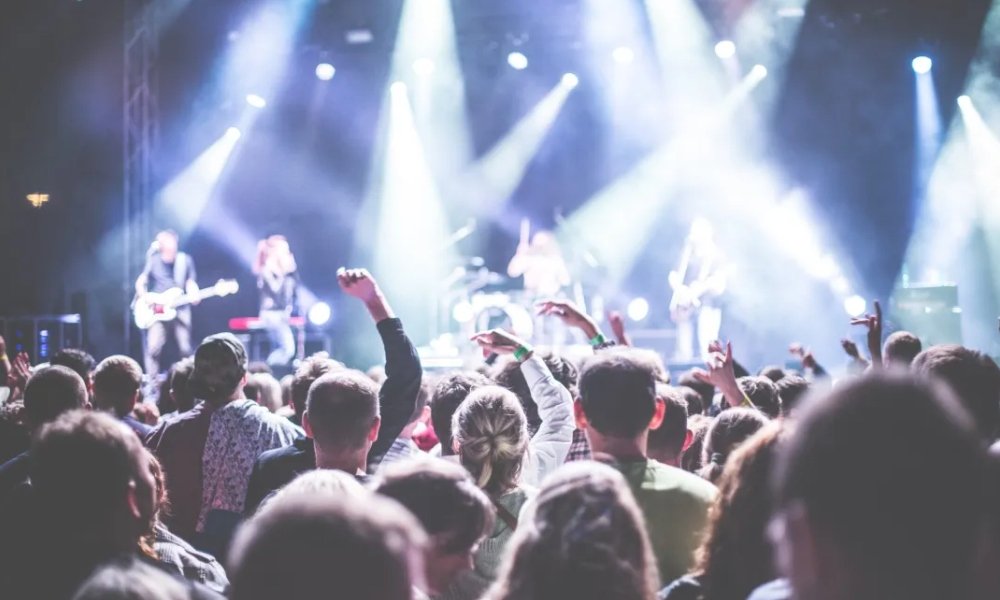Live concerts have the unique ability to bring people together, creating unforgettable moments that resonate for years to come. Some performances stand out not only because of the music but because of the energy, the cultural impact, and the historical significance they carry. These performances have gone beyond the ordinary, becoming milestones in the history of live entertainment. In this post, we’ll take a look at some of the most legendary live concerts that made history, shaping the way we think about live performances.
1. Woodstock 1969: The Ultimate Festival of Peace and Music
Arguably one of the most iconic concerts in history, Woodstock 1969 was more than just a music festival—it was a cultural phenomenon. Held in Bethel, New York, it became the epicenter of the counterculture movement during a time of political and social upheaval. Despite being plagued by logistical challenges, muddy conditions, and a crowd of over 400,000 attendees, Woodstock remains a symbol of peace, love, and music.
Why It Made History:
- Iconic Performances: Artists like Jimi Hendrix, Janis Joplin, The Who, and Jefferson Airplane performed sets that would define their careers and forever be associated with the Woodstock legacy. Jimi Hendrix’s rendition of The Star-Spangled Banner remains one of the most memorable moments in music history.
- Cultural Impact: The festival brought together diverse communities, spreading a message of unity and protest against the Vietnam War, creating an enduring cultural legacy. It was a pivotal moment in both the music industry and American history.
2. Queen at Live Aid 1985: A Performance for the Ages
When it comes to legendary live performances, Queen’s set at Live Aid in 1985 is often regarded as one of the best in history. The event, held at Wembley Stadium in London, was a global benefit concert to raise money for famine relief in Ethiopia. Queen’s frontman, Freddie Mercury, delivered one of the most iconic and electrifying performances of his career.
Why It Made History:
- Freddie Mercury’s Showmanship: With an unmatched connection to the audience, Freddie Mercury commanded the stage, effortlessly leading the crowd in sing-alongs. His energy and charisma were unmatched, making the performance a masterclass in live entertainment.
- Global Audience Impact: Queen performed for an estimated 1.9 billion people worldwide, showcasing their universal appeal. Their set included some of their greatest hits, like Bohemian Rhapsody and We Are the Champions, and their performance has since become a defining moment in rock history.
3. The Beatles at Shea Stadium 1965: The Birth of Stadium Rock
On August 15, 1965, The Beatles made history with their performance at Shea Stadium in New York City, breaking attendance records with over 55,000 screaming fans. This performance is widely considered the birth of modern stadium rock, setting the stage for future large-scale performances by major acts.
Why It Made History:
- First of Its Kind: The sheer scale of the event was groundbreaking. The Beatles performed for an audience larger than anything seen before in rock and roll history, and the sound technology to support such a massive crowd was still in its infancy.
- The Birth of the Beatlemania Phenomenon: Shea Stadium was the epitome of the Beatlemania craze that had swept the world. The Beatles’ performance represented the peak of their popularity and helped solidify their place in music history.
4. Michael Jackson at Motown 25: Yesterday, Today, Forever (1983)
On March 25, 1983, Michael Jackson delivered a performance that would become one of the most iconic in television history. During the Motown 25: Yesterday, Today, Forever TV special, Michael Jackson debuted his signature move: the moonwalk.
Why It Made History:
- The Moonwalk Debut: Michael Jackson’s first-ever public performance of the moonwalk—during his performance of Billie Jean—was a game-changer. It’s one of the most famous dance moves in the world, and this moment elevated Jackson’s status as the King of Pop.
- Cultural Shift: The performance solidified Michael Jackson’s position as not just a musical artist but as a cultural icon. It showcased his talent for blending music, dance, and showmanship in ways no one had seen before.
5. Beyoncé at Coachella 2018: A Modern-Day Masterpiece
Beyoncé’s 2018 Coachella performance was an extraordinary display of talent, precision, and cultural celebration. As the first Black woman to headline the festival, Beyoncé brought an incredible level of artistry and relevance to the stage. Her performance was a stunning blend of musical excellence, visual storytelling, and cultural pride.
Why It Made History:
- Cultural Impact: The performance featured a powerful nod to African-American culture, with Beyoncé incorporating elements of historically Black colleges and universities (HBCUs), marching bands, and Black empowerment. It wasn’t just a concert—it was a celebration of Black culture.
- Artistic Excellence: Beyoncé’s vocal performance, choreography, and stage design were groundbreaking, setting a new bar for live music performances. The concert was later dubbed “Beychella” and became a cultural touchstone for music and performance art.
6. Nirvana at MTV Unplugged 1993: The Final Chapter
In 1993, Nirvana took part in MTV’s Unplugged series, giving an intimate performance that would become one of their most defining moments. This show was significant not only because of the raw emotional power of the performance but also because it was one of the last concerts the band played before Kurt Cobain’s tragic death in 1994.
Why It Made History:
- Unplugged Reinvention: Nirvana’s acoustic set was a departure from their signature grunge sound, featuring a setlist filled with cover songs and haunting renditions of their hits. The vulnerability and raw emotion of the performance struck a chord with fans, showing a different side of the band.
- Lasting Legacy: The MTV Unplugged performance is often remembered as one of the most powerful moments in Nirvana’s history, showcasing the band’s ability to evoke deep emotion and authenticity in an intimate setting.
7. Live 8 2005: A Global Movement for Change
Held on July 2, 2005, Live 8 was a series of concerts organized to raise awareness about global poverty and to pressure the G8 countries to take action. The event took place simultaneously in multiple countries and featured some of the world’s biggest stars, including U2, Pink Floyd, and Coldplay.
Why It Made History:
- Unprecedented Scale: Live 8 was not just a concert; it was a global event, broadcast to millions of viewers across the world. It had a significant cultural and political impact, helping to raise awareness about poverty and urging world leaders to take action.
- Reunion of Pink Floyd: Perhaps one of the most memorable moments was the reunion of Pink Floyd after 24 years. Their performance at Live 8, which was watched by millions, was a defining moment in rock history.
8. Elvis Presley’s Aloha from Hawaii (1973): The First Global Satellite Broadcast
Elvis Presley’s Aloha from Hawaii concert, which aired live via satellite on January 14, 1973, was a groundbreaking event. It was the first concert to be broadcast live via satellite and was watched by an estimated 1.5 billion people in 40 countries, making it one of the most-watched events in television history at the time.
Why It Made History:
- Technological Innovation: Aloha from Hawaii set a new standard for live performances on television. The satellite broadcast allowed fans around the world to experience Elvis’s performance as if they were there in person.
- Elvis’s Final Chapter: This concert, which featured some of Elvis’s most beloved songs, marked a significant moment in his career, as it was one of his last large-scale performances before his decline.
Conclusion: Concerts That Changed the World
From Woodstock to Coachella, these legendary live performances have become defining moments in music history. Each concert showcased the power of music to unite, inspire, and make an impact on both audiences and culture. Whether they introduced new technological innovations, marked the end of an era, or became platforms for activism, these concerts prove that live performances have the ability to create lasting memories and change the course of history. These moments continue to inspire artists and fans alike, ensuring that the magic of live music will always hold a special place in our hearts.




No Comment! Be the first one.